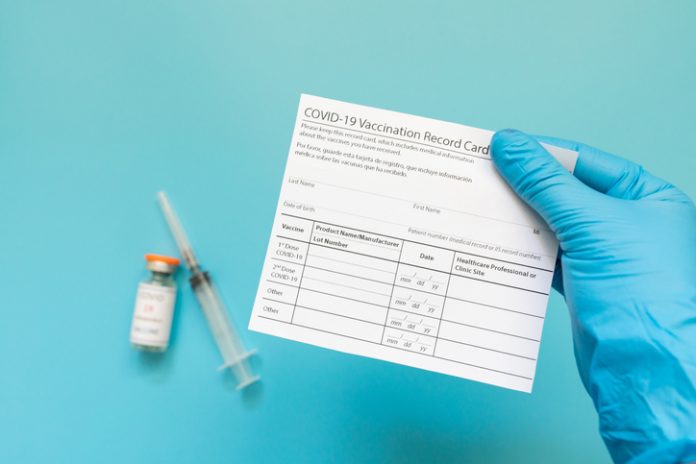By Christina A. Herrin
The Food and Drug Administration officially approved the first COVID-19 vaccine, developed by Pfizer-BioNTech and newly named Comirnaty, for use by individuals over the age of 16.
The vaccine can be used to prevent serious illness resulting in hospitalization or death from the COVID-19 virus. Before the approval, the vaccine was issued under an emergency use authorization (EUA). With full authorization, the Pfizer-BioNTech can now advertise and set a price for its vaccine.
“I see no need to rush the FDA approval process for any of the three COVID-19 vaccines. Expediting the process appears to only serve the political purpose of imposing and enforcing vaccine mandates,” said Sen. Ron Johnson (R-Wis.) in a public statement. “The observational phases of FDA approval take time because there is no substitute for time in detecting and determining possible long-term harm.”
Full FDA approval could give a variety of institutions legal footing to mandate COVID-19 vaccines. Some health care facilities and universities already require a list of vaccines for employees and students, including tetanus, diphtheria, polio, MMR, and influenza. The COVID-19 vaccine could be a required inoculation year after year.
Supreme Court Precedent
A U.S. Supreme Court case dating back to 1905, Jacobson v. Massachusetts, upheld the power of the state to enforce vaccination in response to a public health threat. Even though the case occurred over 100 years ago for smallpox, a more life-threatening illness than COVID-19, similar arguments are being used to defend the coercion of the COVID-19 vaccine.
Before the vaccine was fully approved, Supreme Court Justice Amy Coney Barrett declined to block Indiana University’s COVID-19 vaccine mandate at the request of eight students who filed a motion for emergency relief. The students argued they had “a constitutional right to bodily integrity, autonomy, and of medical treatment choice in the context of a vaccination mandate.” Barrett did not explain her decision.
Immediately after the FDA announcement, Pentagon spokesman John Kirby told reporters the COVID-19 vaccination will be mandatory for all U.S. service members. The Department of Defense had been considering the action before authorization, despite objections from troops.
Right to Refuse Treatment
Whether full authorization interferes with an individual’s right to refuse treatment is still a big question, says Andrew Schlafly, an attorney who has represented the Association of American Physicians and Surgeons on liberty issues.
“I’m trying to determine exactly what the FDA approved yesterday,” Schlafly said. “It’s confusing, perhaps deliberately so, in the FDA’s actions.”
“The Jacobson vaccine decision by the Supreme Court in 1905 should no longer be considered good law,” Schlafly said. “Individual rights have expanded enormously since then, while vaccine mandates today are profit-driven without the justification in 1905 of trying to stop the smallpox disease.
“Medical exemptions were expressly allowed by the Jacobson decision, while today they have been generally denied despite more than 12,000 deaths reported to VAERS in connection with the Covid vaccines,” Schlafly said.
Christina A. Herrin (CHerrin@heartland.org) is a government relations manager in health policy at The Heartland Institute.




















